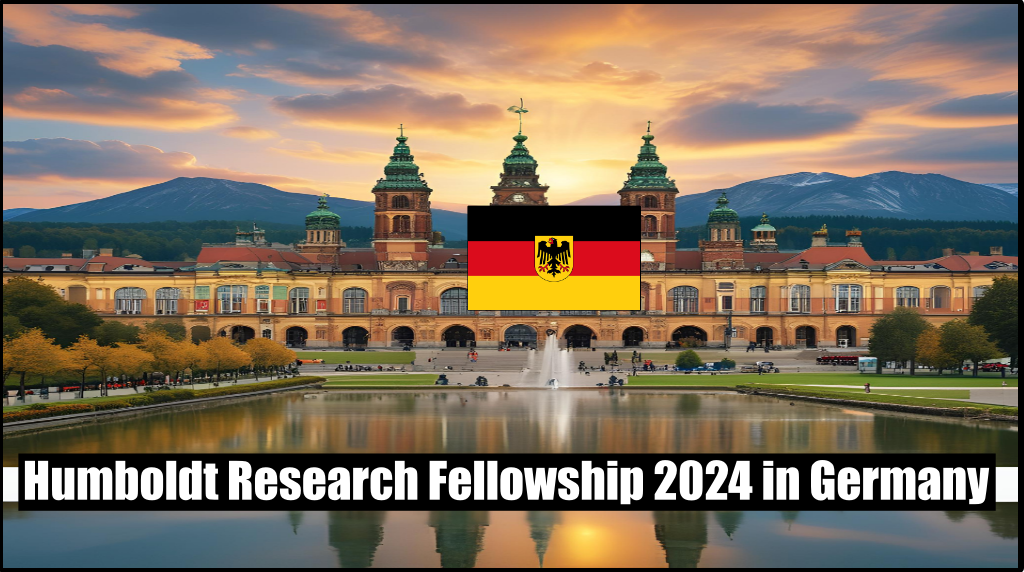The Humboldt Research Fellowship is a prestigious opportunity for researchers worldwide to conduct research in Germany. It offers a platform for postdoctoral and experienced researchers to collaborate with German institutions and advance their academic pursuits. This guide provides a detailed overview of the fellowship, including eligibility criteria, benefits, application process, and tips for a successful application.
Overview of the Humboldt Research Fellowship
The Humboldt Research Fellowship, offered by the Alexander von Humboldt Foundation, aims to promote academic collaboration between international and German researchers. The fellowship supports research projects in all disciplines, facilitating cutting-edge research and fostering academic exchange.
Types of Fellowships
- Postdoctoral Fellowship: For researchers who have completed their doctorate within the last four years.
- Experienced Researchers Fellowship: For researchers who completed their doctorate more than four years ago but less than twelve years ago.
Eligibility Criteria
To qualify for the Humboldt Research Fellowship, applicants must meet the following criteria:
- Doctoral Degree: A completed doctoral degree is mandatory. Postdoctoral applicants must have completed their doctorate within the last four years, while experienced researchers must have completed it within the last twelve years.
- Academic Publications: Applicants should have a significant record of academic publications in peer-reviewed journals.
- Research Proposal: A well-defined research proposal that aligns with the interests of a German host institution.
- Host Institution: An invitation from a German host institution, including a research plan agreed upon with a host.
Benefits of the Fellowship
The Humboldt Research Fellowship provides numerous benefits to its recipients, enhancing their research capabilities and professional growth.
- Financial Support: Monthly stipends range from €2,670 to €3,170, depending on the researcher’s experience.
- Travel Expenses: Coverage of travel expenses to and from Germany.
- Family Allowances: Additional allowances for accompanying family members.
- Research Costs: A research allowance for the host institution to cover research costs.
- Language Courses: Funding for German language courses before and during the fellowship.
- Networking Opportunities: Access to a robust network of Humboldt alumni and other researchers.
Application Process
The application process for the Humboldt Research Fellowship involves several steps. Detailed preparation and adherence to guidelines are crucial for a successful application.
Step 1: Prepare Application Documents
Applicants must prepare the following documents:
- Curriculum Vitae (CV): Including a complete list of publications.
- Research Proposal: Detailed description of the planned research project.
- Host’s Statement and Confirmation of Research Facilities: From the German host institution.
- References: Two expert reviews from academics in the applicant’s field.
Step 2: Submit Online Application
Applications are submitted online through the Humboldt Foundation’s application portal. Ensure all documents are in the required format and submitted by the deadline.
Step 3: Selection Process
Applications are reviewed by independent experts in the respective fields. The selection criteria include the applicant’s academic record, the quality and feasibility of the research proposal, and the fit with the host institution.
Step 4: Acceptance and Fellowship
Selected applicants receive an official acceptance letter and further instructions on the fellowship commencement. The fellowship duration ranges from 6 to 24 months for postdoctoral researchers and 6 to 18 months for experienced researchers, with the possibility of extension.
Tips for a Successful Application
- Thorough Research: Identify and connect with potential host institutions well in advance. A strong connection with the host can significantly enhance the proposal.
- Clear Proposal: Write a clear, concise, and compelling research proposal. Highlight the originality, relevance, and potential impact of your research.
- Strong References: Secure references from respected academics who can vouch for your capabilities and potential.
- Language Proficiency: While not mandatory, proficiency in German can be beneficial. Utilize the offered language courses to enhance your integration into the research environment.
Apply Here
Also check: France Scholarships for International Students 2024

